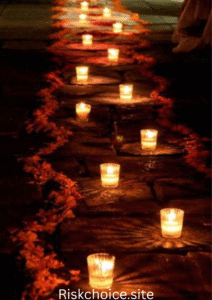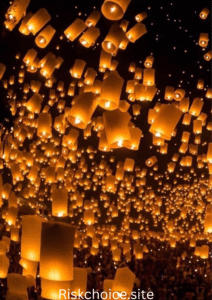
Starting a candle company is a creative and rewarding endeavour, but like any small business it carries hazards. Whether you run a store or create soy candles at home, you must guard your investment. Candle company insurance then becomes really important.
This tutorial will go over what candle company insurance is, why it’s important, the several kinds of coverage that are offered, and how to select the correct policy for your situation.
Candle Business Insurance: Definition
Designed to guard candle producers from financial losses resulting from accidents, property damage, product liability, or legal claims, candle business insurance is a specific type of small business insurance. This kind of coverage can be adjusted to meet bigger commercial candle-making companies as well as home-based operations.
Working with combustible chemicals, hot wax, and smells that can set off allergies, the candle-making business One error can cause lawsuits or fire hazards. Insurance offers a safety net, allowing you to keep your attention on expanding your company instead of muckering over any mistakes.
Why Would Your Candle Company Want Insurance?
Operating a candle shop without insurance carries danger. You could still run across: even if you make candles in tiny quantities and sell them on Etsy or local marketplaces.
1. Damage From Fire
Making candles requires melting wax under control of temperature. A little mishap could start a fire that destroys your house or business.
2. Claims on Product Liability
Imagine a client saying their candle started an allergic reaction because of a scent or set off a fire in their house. Should they sue you, legal fees might be catastrophic.
3. Commercial Equipment Loss
Business assets include your molds, fragrances, colors, packaging, and inventory. Should they be stolen or damaged, out-of-pocket replacement could prove difficult financially.
4. Delivery and Shipping Problems
Should you be transporting candles, you may be liable for shattered glass container damage or accidents resulting from them on route.
Insurance can help you manage these risks, therefore guaranteeing the survival and growth of your candle-making company—even in cases of unanticipated events.
Categories of Candle Business Insurance Policies
Think about combining numerous forms of coverage to completely guard your candle company. The most often used and valuable insurance policies are broken out here:
1. Liability Insurance Generally
Most company insurance policies are built upon this. It spans:
Customer or third party bodily injury
Damage of properties resulting from your company activities or products
Legal costs should one be sued for.
For instance, a consumer files a lawsuit after burning their fingers on your candle. Legal costs and settlements might be helped covered by general liability insurance.
2. Liability for Products: Insurance
This kind of insurance especially covers claims involving goods you produce or market. Given the fire risk connected with candles, this is especially crucial for companies running candle stores.
For instance, a client says one of your candles exploded and ruined their belongings. Product liability insurance would guard your company and pay for their losses.
3. Commercial Property Coverage
Coverage under either ownership or leasing of a workspace or studio for your candle-making company safeguard:
Tool
inventory
Tables
Signage
Business real estate from natural calamities, theft, or fire
For instance, a fire ruins your inventory and wax melting equipment. Insurance for commercial property lets you bounce back from those losses.
4. Business Insurance for Home-Based Enterprises
Your homes insurance could not cover business-related losses if you conduct your candle company from your house. Either separate coverage or a home-based business endorsement is needed.
For instance, your equipment for creating candles sets fire in your garage workspace. Unlike ordinary home insurance, home-based business insurance would cover the losses.
5. Insurance for Business Interruption
This covers lost income should a covered incident—such as a fire or flood—cause your company’s operations to stop.
For instance, your workshop gets wrecked and you cannot make candles for a month. Coverage for lost income during this period come from business interruption insurance.
Six: Commercial Vehicle Insurance
Should you deliver candles from a car or visit marketplaces and fairs, you could want a commercial auto policy to guard against theft or mishaps.
How Much Does Candle Business Insurance Cost?
Several elements determine the cost of candle business insurance, including:
Revenue and corporate scale
Employment count
Coverages restrictions and deductibles
place
Product type and volume of manufacture
Typical ranges of cost:
$300–$800/year is general liability insurance.
Product liability insurance is between $400 and $1,200 annually.
$500–$1,000/year is commercial property insurance.
Home-based business insurance runs from $250 to $500 annually.
Many insurance companies sell Business Owner’s Policies (BOPs) that combine property insurance at a reduced rate with general liability.
You will need to provide specifics about your production volume, sales channels, and materials used in order to obtain a reasonable estimate.
Where may one purchase candle business insurance?
Many respectable insurance firms and brokers provide custom coverage specifically for candle producers. Some possibilities consist in:
Herco
Then Insurance
Thrumble
State Farms
Hartford:
Advice on Selecting the Correct Insurer: Search for suppliers having background in small businesses or craft sectors.
Review consumer comments and grievances.
Inquire on bespoke packages for home-based companies.
Verify whether included is product liability.

Do you still need insurance even if you only sell candles online?
Indeed, insurance is absolutely vital even if your only sales on Etsy, Amazon Handmade, or your own website are candles.
Online sites could call for your carrying of product liability insurance. Certain markets may suspend your store should you not be insured. No matter how tiny your business is, consumers could nonetheless submit claims for property damage or injuries resulting from your candles.
Real-Life Example: Why One Maker of Candles Skipped Insurance?
Imagine a modest North Carolina candle maker running a profitable Etsy store offering hand-poured soy candles. A lavender and chamomile candle among her best-selling items was bought by a customer who claimed it burst and started a small house fire.
The client brought a $15,000 damage lawsuit.
The candle producer had to pay legal fees and a settlement personally as the company lacked insurance. It erased over a year’s worth of income.
She could have claimed something and kept her business open if she had product liability coverage.
Often asked questions, or FAQs:
Is legally needed candle business insurance?
While certain local governments or event planners—such as craft fairs—may demand proof of liability coverage, insurance is not necessarily legally needed for candle enterprises.
2. For those who produce candles, what sort of insurance is most crucial?
Given the inherent hazards of fire and allergic responses, product liability insurance is usually the most important.
As a part-time candle maker, can I obtain insurance?
Indeed, several insurance companies provide adaptable plans for home-based businesses and side projects.
4. What details will help me get a quote?
Get ready to offer:
your yearly income
Count of items sold
Type of components utilized
Where and by what channel you sell your candles?
Last Words: Guard Your Passion with Appropriate Coverage
Your candle company is your livelihood, passion, and creative outlet; it is not only wax and wicks. Let not one accident or lawsuit destroy all you have created. Candle company insurance can help you to run with peace of mind and safeguard your skill.
Whether you sell in stores, at neighborhood markets, or online, having appropriate insurance protects your future. Examine your risks, weigh quotes, and select a policy fit for your situation. In this way, you may stay safe and secure while concentrating on what you love—making beautiful, aromatic candles.
